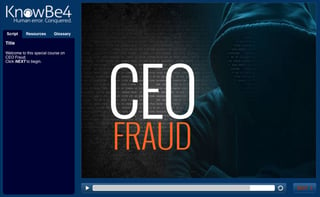 The BBC has a cautionary tale for pretty much everyone who uses email. It’s the story of a finance director who was sacked after falling for a phishing scam disguised as a message from the boss. The name of the company and the players are anonymous in the story, but the BBC describes the sequence of events this way:
The BBC has a cautionary tale for pretty much everyone who uses email. It’s the story of a finance director who was sacked after falling for a phishing scam disguised as a message from the boss. The name of the company and the players are anonymous in the story, but the BBC describes the sequence of events this way:
The email from the boss looked kosher. He said a new supplier needed paying urgently – £50,000 to secure an important contract. He wanted it done as soon as possible because he was on holiday and didn’t want to worry anymore about work. This rang true to the finance director because his boss had already posted a photo of his Greek island getaway on Instagram. His email address looked genuine too. But, of course, it wasn’t the boss.
It was a fraudster who’d done his research and was skilled at psychological manipulation. The small manufacturing firm – that wishes to remain anonymous – ended up losing £150,000 to the fraudster in the mistaken belief that he was a legitimate supplier. When the boss found out the bad news, he fired the finance director.
The article says to beware of three words in any email subject field: “urgent”, “payment” and “request”. Excellent advice.
Full story at the BBC

CEO Fraud Prevention Manual Download
CEO fraud has ruined the careers of many executives and loyal employees. Don’t be next victim. This brand-new manual provides a thorough overview of how executives are compromised, how to prevent such an attack and what to do if you become a victim.
PS: Don't like to click on redirected buttons? Copy and paste this link in your browser:





